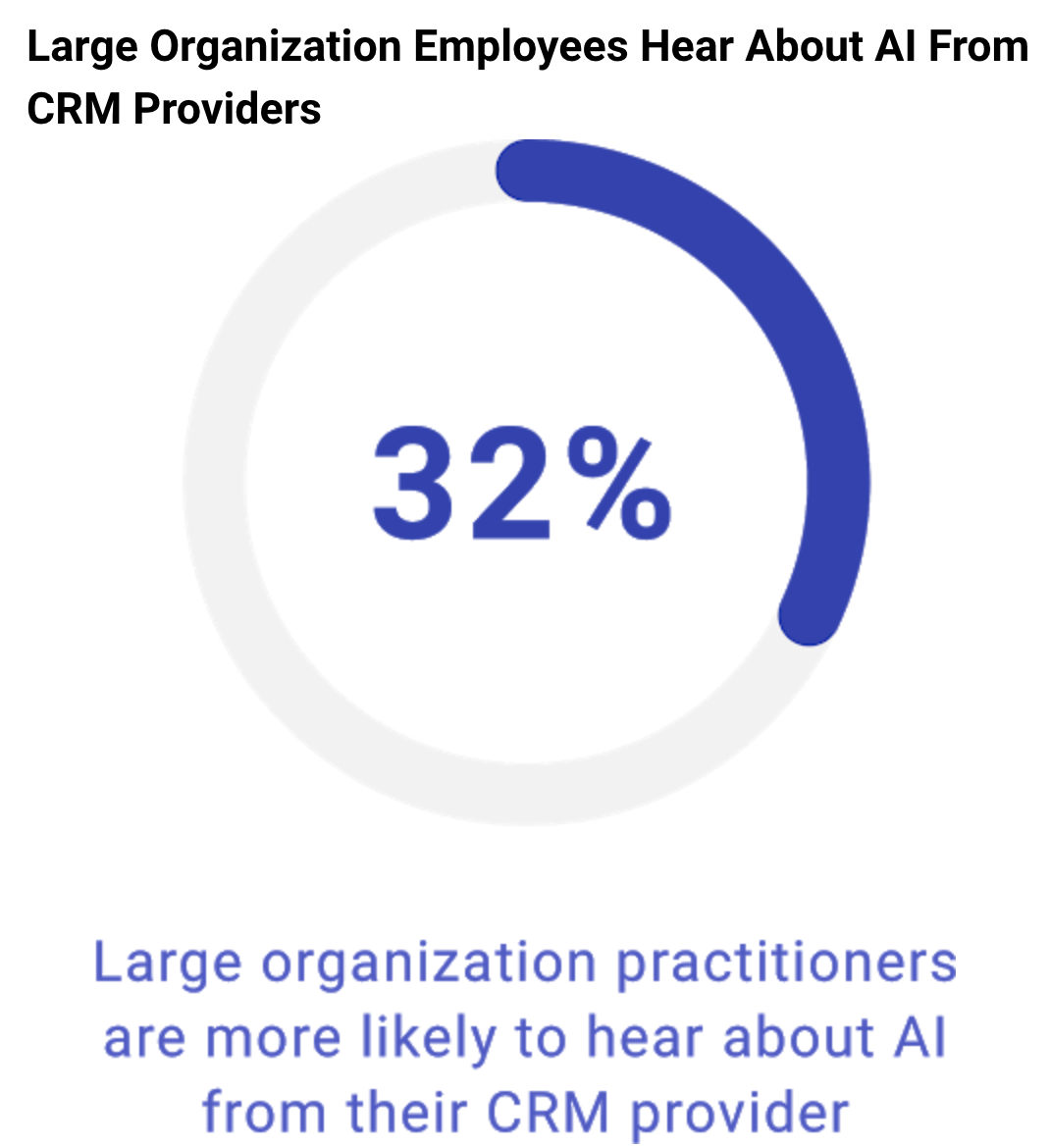One of the most rapid diffusions of innovation in human history is the creation and adoption of the internet. It started in 1989 and was considered widely adopted within a decade (61% of adults in the U.S.) — as noted by Everett Rogers. As we look back on it from today’s vantage point, the people adopting the innovation were urban, upper-middle class, computer owners. Access to computers was the critical driver to adopting the internet. To address this finding, community centers were set up in poor, rural areas to enable access to the web for the purpose of bringing on the late majority and laggards to this new innovation.
During the research for the “State of Artificial Intelligence in the Nonprofit Sector (SAINS),” our team found that 57% of nonprofit practitioners noted hearing about artificial intelligence (AI) primarily from their constituent relationship manager (CRM) providers. The fact that CRM providers are knowledge providers to new innovations (more than nonprofit associations or publications) means that CRM providers hold a unique power to influence decision-making when it comes to where nonprofit organizations will invest.
The SAINS report only touched briefly on the topic, so we wanted to dive more deeply into the topic. What we found was a few interesting takeaways. These are:
- Large organization employees hear about AI from their CRM Providers
- Generation X practitioners rely on CRMs for AI data
- Thought leaders are less likely to rely on CRM providers for AI knowledge
- Most people believe we need an ethical framework for AI
Download the full article here!
Free Resource: have you downloaded the SAINS report yet? It’s the most comprehensive analysis of artificial intelligence for social good available.
About the authors: Jared is the CEO of PwrdBy, speaker, and a published author. PwrdBy empowers nonprofits to fundraise smarter through artificial intelligence apps such as Amelia and NeonMoves. Before joining PwrdBy, Jared was a Senior Consultant in Deloitte’s Sustainability practice with experience working with Fortune 500 companies to design social and environmental sustainability strategies. He is a Lean Six Sigma Process Black Belt.
Tim Sarrantonio oversees Neon One’s ecosystem of software, consultant, and institutional partners that can address any nonprofit need. Neon One provides best in class products with NeonCRM, Rallybound, CiviCore, Arts People, and an ecosystem ensures that over 27 product integrations and over 90 consultants are working to solve problems specific to nonprofits.


Recent Comments